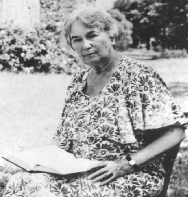I’ve been commenting on the history of education on and off now for a couple of months. Recently, I’ve pointed out that John Dewey is considered the “Father of Progressive Education.” He had many disciples who put his ideas into practice.
One of those was Marietta Pierce Johnson who started a school in Fairhope, Alabama, in 1907. She called it the Organic School. Here were her basic tenets:
- There were no achievement groupings for students
- Children were never be compared
- No homework or exams were part of the education process
- “Play” was a central component of learning, particularly folk dancing; only folk dancing and classes in the arts were required for all students
- No child was allowed to fail (which wasn’t hard, considering there were no exams)
Sound like fun? Well, yes, but that’s all it really was—fun. Dewey was impressed, however. He commented,
Her main underlying principle is Rousseau’s central idea, namely: The child is best prepared for life as an adult by experiencing in childhood what has meaning for him as a child; and, further, the child has a right to enjoy his childhood.
Quoting Jean Jacques Rousseau is hardly the means to winning my support. He’s the philosopher who fathered illegitimate children, and rather than take the responsibility to raise them himself, turned them over to an orphanage instead. Of course he would focus on the rights of a child—he never grew up himself. He was childish in all his ways.
While I can’t say that Johnson’s ideas have taken over education completely today, her imprint—and that of her mentor Dewey—is clearly evident. How does this educational approach prepare anyone for real life?
And then, of course, there’s the need for actual effort on the part of the students.


